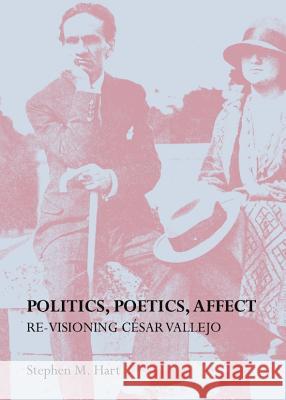Politics, Poetics, Affect: Re-Visioning Cã(c)Sar Vallejo » książka
Politics, Poetics, Affect: Re-Visioning Cã(c)Sar Vallejo
ISBN-13: 9781443848923 / Angielski / Twarda / 2013 / 190 str.
This book seeks to re-vision the life and work of the Peruvian poet, Cesar Vallejo (1898-1938). It consists of ten essays grouped into three complementary sections on Politics, Poetics and Affect. In Part I, William Rowe draws out the latent layers of political meaning in Vallejo's 'pre-political' work, Trilce; Adam Feinstein weighs the evidence for and against the case that there was a rift between the two most important Latin American poets of the twentieth century (Vallejo and Pablo Neruda); and David Bellis compares and contrasts Vallejo's Spanish Civil War poetry with that composed by Neruda and the Cuban poet Nicolas Guillen. In Part II, Dominic Moran provides a line-by-line dissection of Vallejo's favourite poem of his early period, 'El palco estrecho'; Adam Sharman offers a close reading of Poem XXIII of Trilce; Paloma Yannakakis looks at the role played by the human body in Vallejo's poetics; while Michelle Clayton reviews the ways in which animals are represented in Vallejo's poetry. In Part III, Santi Zegarra discusses the influence that Vallejo's poetry has had on his film-making; Eduardo Gonzalez Viana reveals how he re-created Vallejo's experience of imprisonment in his novel Vallejo en los infiernos; while Stephen Hart compares and contrasts the two main muses of Vallejo's early poetry, his niece (Otilia Vallejo Gamboa) and the woman he met in Lima (Otilia Villanueva Pajares).











